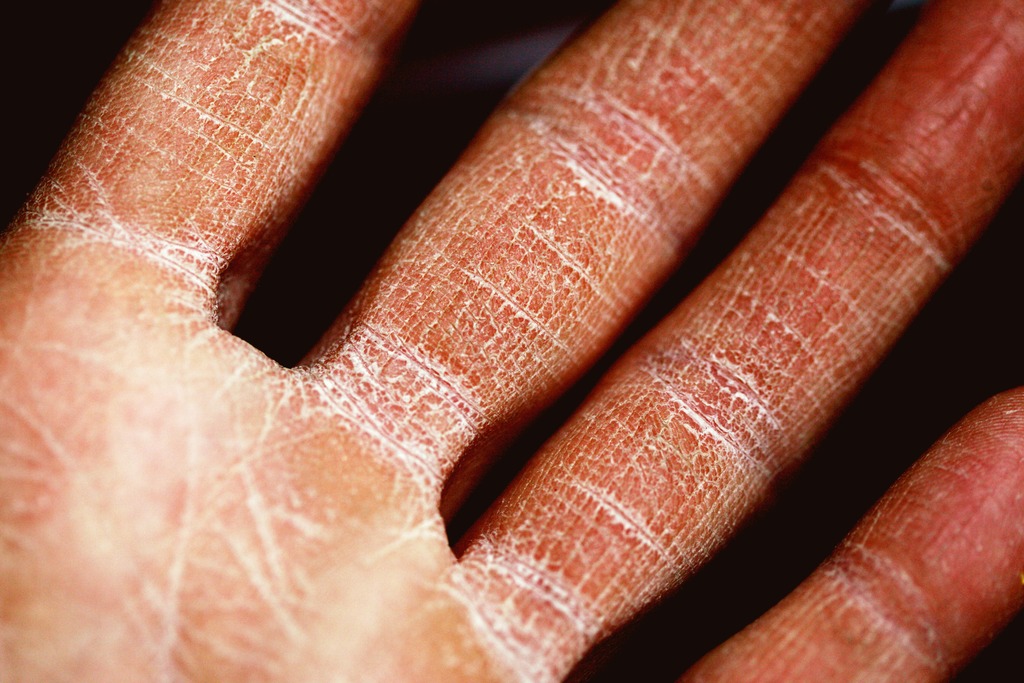Eczema is a skin condition that leads to inflammation, redness, and rough patches, making everyday life uncomfortable for those affected. While there are medications available to manage eczema symptoms, identifying potential triggers can often help prevent flare-ups before they even start, reducing the need for medical intervention.
Below are five common triggers that can cause eczema flare-ups and ways to manage them:
1. Food Sensitivities
Monitoring your diet is crucial when managing eczema, as certain foods can trigger flare-ups, especially in children and babies. Common culprits include dairy, eggs, peanuts, soy, and fish, which can worsen symptoms in susceptible individuals. However, it’s not always easy to pinpoint which foods are causing the issue.
Keeping a detailed food journal can help identify patterns between what you eat and your skin reactions. Before cutting any foods from your diet, it’s essential to consult with a healthcare provider or a nutritionist. They can guide you in maintaining a balanced diet while avoiding foods that trigger your eczema, ensuring you continue to receive all the necessary nutrients.
2. Weather Changes
Many people with eczema notice their symptoms worsen in cold, dry weather, particularly during winter. The combination of chilly temperatures and indoor heating can sap moisture from your skin, exacerbating eczema symptoms. The cold air itself can also act as a trigger, making skin more prone to cracking and discomfort.
To minimize the impact of winter weather, try to maintain a balanced indoor environment. Central heating systems can dry out the air, so avoid sitting too close to heaters. Using a humidifier in your home can help maintain adequate moisture levels in the air, soothing dry skin and reducing flare-ups.
3. Physical Activity
Exercise is generally beneficial for overall health, but it can be a trigger for eczema flare-ups due to increased body heat and sweat. However, with a few adjustments, you can still enjoy your workouts without worsening your symptoms.
Choose breathable, moisture-wicking clothing to keep cool during exercise, and avoid overdressing. It’s also important to stay well-hydrated before, during, and after workouts to help manage body temperature and minimize skin irritation. If sweating triggers your eczema, consider shorter, less intense sessions or cooling down more frequently.
4. Household Irritants
Common household allergens like dust mites, pollen, and pet dander can significantly contribute to eczema flare-ups. These tiny irritants often go unnoticed but can wreak havoc on sensitive skin. Dust mites, in particular, are often present in carpets, bedding, and upholstery.
To reduce exposure, regularly clean your home by vacuuming carpets and wiping down hard surfaces. For those sensitive to pollen, try to keep windows and doors closed during high pollen seasons and avoid hanging laundry outdoors. Implementing these small changes can help create a more eczema-friendly home environment.
5. Sun Exposure
While sunlight helps the body produce vitamin D, excessive exposure can worsen eczema symptoms. UV rays can dry out the skin and increase inflammation, leading to uncomfortable flare-ups. The sun’s rays are strongest between 11 a.m. and 3 p.m., making it crucial to take extra precautions during these hours.
Applying sunscreen with a high SPF is essential when spending time outdoors, and it should be reapplied every two hours, or more frequently if swimming or sweating. Seeking shade and wearing protective clothing can also help protect your skin from the sun’s harsh effects.
Conclusion: Understanding and Managing Eczema Triggers
Recognizing and managing these common triggers can significantly help in controlling eczema flare-ups. By making thoughtful adjustments to your diet, managing your environment, and being mindful of weather and exercise impacts, you can reduce the frequency and severity of flare-ups. Always consult with healthcare professionals when making changes to your routine to ensure you’re managing your eczema safely and effectively.




